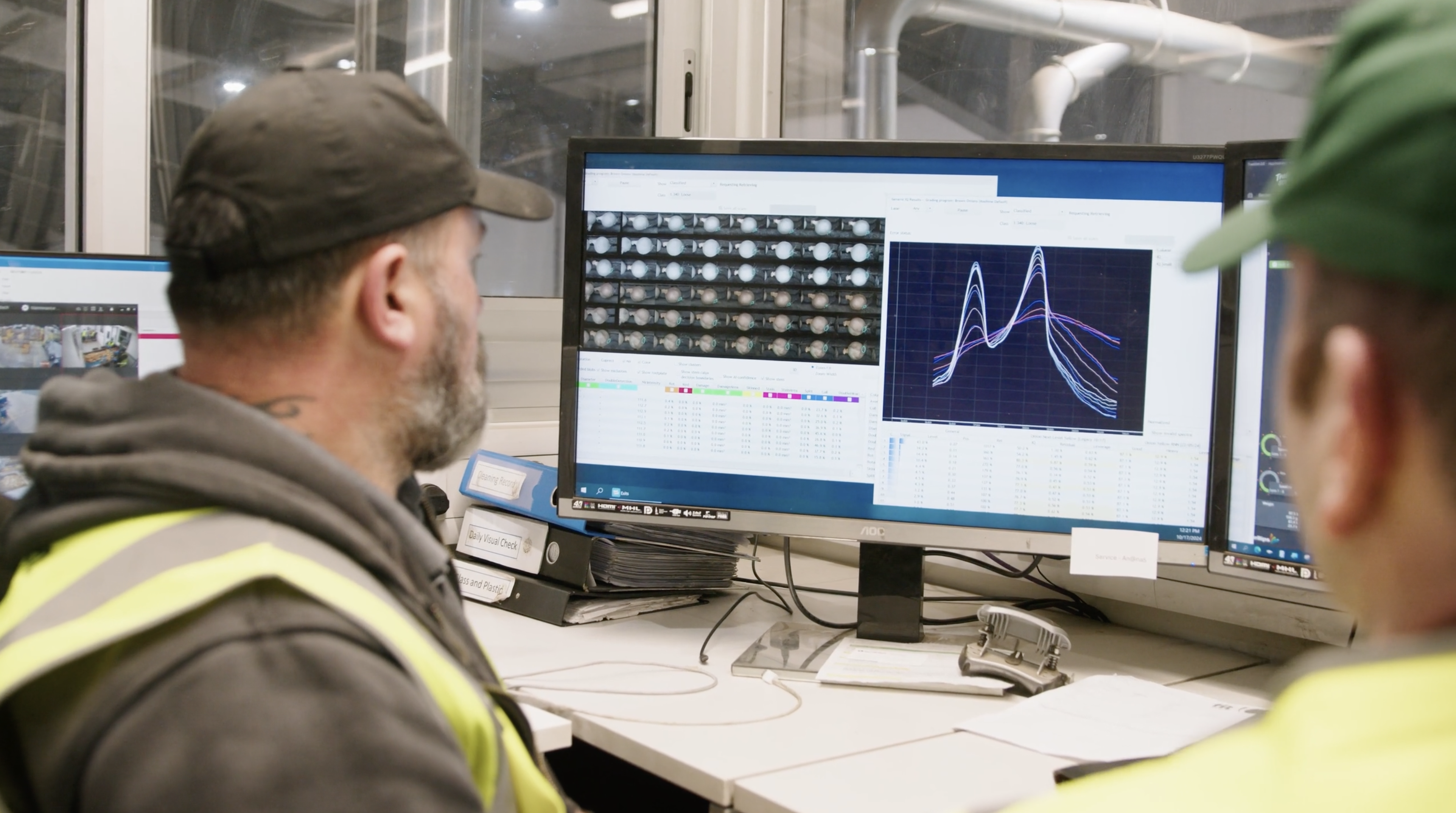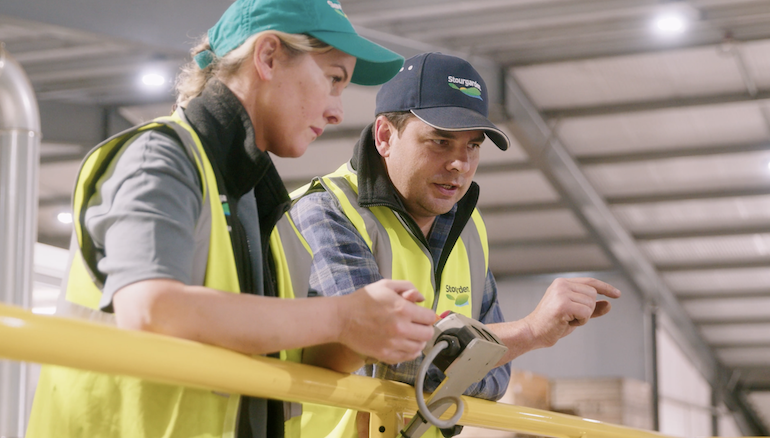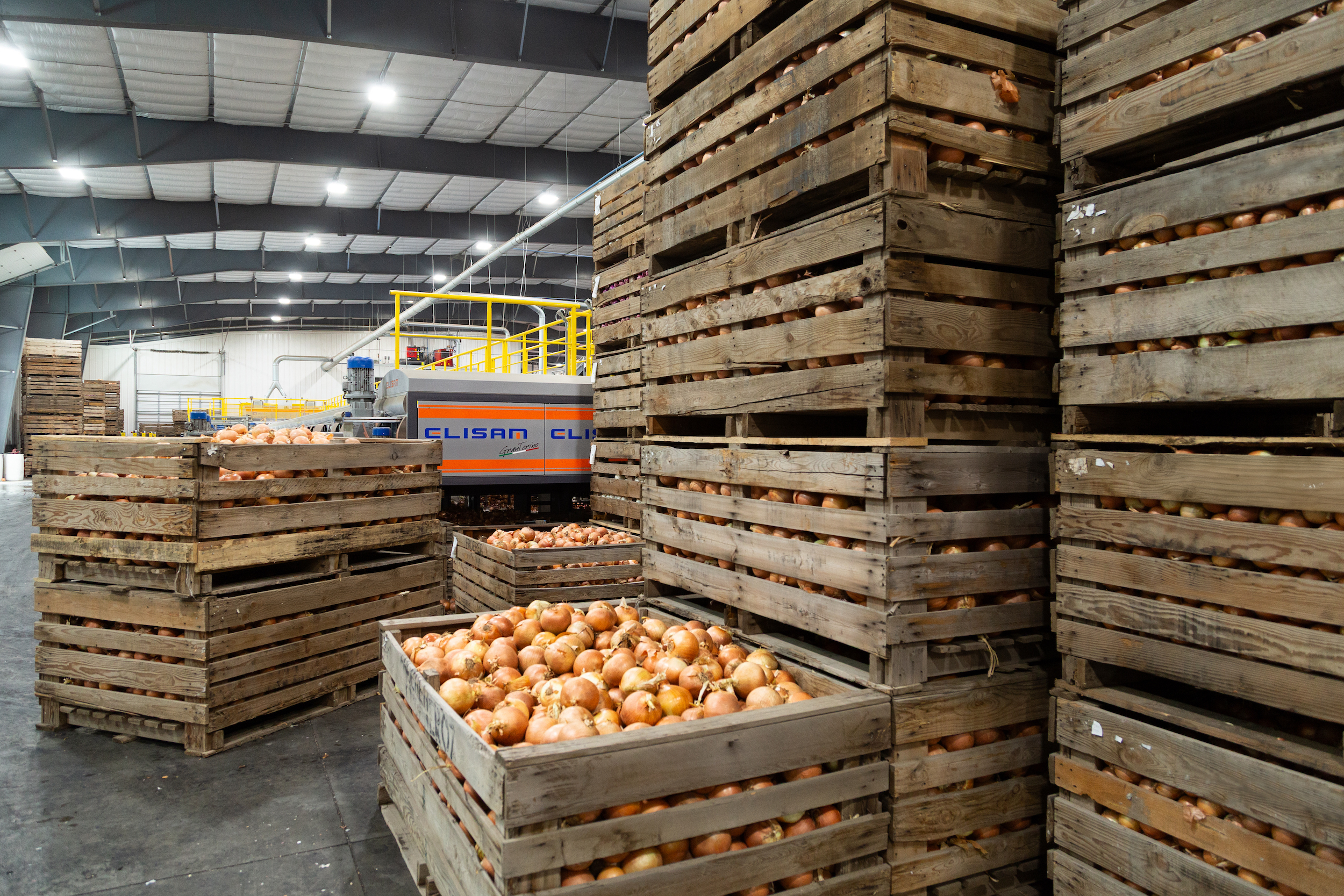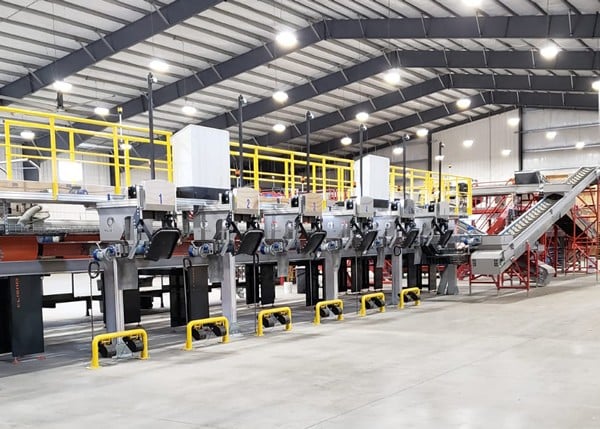Stourgarden, a third-generation family business based in the UK, was facing major operational pressure. Customer demands were increasing, volumes were rising, and their mechanical grader could no longer keep up. In 2018, they invested in an eight-lane Elisam optical onion grader powered by Ellips TrueSort software. And in 2023, they upgraded to True-AI, giving them a significant boost in both defect detection and efficiency. The result: higher throughput, better grading accuracy, less waste, and more consistent quality. All while reducing the need for labor and providing better feedback to growers and customers.
Following are just some of the improvements that Stourgarden achieved:
✅ Doubled grading capacity: Now handling around 200 tons per day with half the labor.
✅ Improved defect detection: For both internal and external issues, with fusarium being the top priority.
✅ Greater flexibility. Quickly adjusting size bands and specs to match different customer requirements.
Watch all experiences of Ben in this video:
About Stourgarden

A family business built on onions
Stourgarden is one of the UK’s largest dedicated onion packers, handling over 100,000 tons of onions annually. The company was founded in 1995 by the Rix family, third-generation onion growers based along the Essex–Suffolk border. With Tesco as their first customer, they hit the ground running. "Back in 1995, we packed 50 tonnes in the first week, and last week we packed just shy of 2000 tonnes. It’s been a huge amount of growth in the last 30 years."
That growth is evident in every part of the business. The operation spans around 2,400 hectares of farmland and is divided between PG Rix Farms, focused on growing, and Stourgarden Ltd, focused on grading, packing and supply. PG Rix Farms grows a variety of crops including onions, potatoes, combinable crops and sugar beet, supporting a reliable, year-round supply chain.

A full-service packhouse for the entire UK market
Operating from a purpose-built packhouse at Lodge Farm, Stourgarden supplies brown, red, and pink onions to UK retailers, wholesalers, and foodservice providers (52 weeks a year). Most onions are locally grown in Essex, Suffolk, Norfolk, and Kent, with audited international supply partners used during short off-season windows. The company also runs a peeling facility for off-spec onions, supporting the prepared food market.

Powered by strong grower partnerships
A key strength of Stourgarden is its long-standing network of British growers, many of whom have worked with the business for over 25 years. This collaboration ensures not just volume, but also consistent quality across all grades. With modern grading technology and a flexible packhouse setup, Stourgarden can meet shifting retailer demands, while giving growers real-time data and insights to help improve crop quality year after year.
Supporting growers with data-driven insights
Stourgarden doesn’t just deliver consistency to retailers, it also shares rich grading data back to its network of UK growers. With detailed reporting on defect rates, size splits, and pack-out ratios, growers receive actionable insights they can use to refine seed spacing and crop planning. This feedback loop strengthens the entire supply chain, helping improve both product quality and yield season after season.
Key challenges driving change
By 2018, Stourgarden was under growing pressure. The company had taken on a significant increase in business, but its existing mechanical grader couldn’t keep up. Grading speed, accuracy, and labor efficiency were all falling short of what was needed to meet retailer demands. Crop defects like fusarium were slipping through, and the limitations of manual inspection were creating escalating challenges across the line.
1. Throughput couldn’t match rising demand
The turning point came when the business simply didn’t have the capacity to grade the increasing volume of onions. The mechanical grader couldn’t maintain throughput when crops were problematic. If defects were present, the whole system had to slow down, cutting output and delaying orders. Even under ideal conditions, the setup was inefficient, forcing Stourgarden to run long hours with limited results.
2. Internal defects slipped through undetected
Manual grading struggled to detect internal issues, especially fusarium, a major concern in the UK onion sector. This led to an increase in customer complaints, particularly from pre-packed formats like three-onion nets. With no internal detection capability and no visibility into subtle external defects like bacterial problems or staining, meeting retailer specifications consistently was a constant struggle.
3. High labor demand with limited return
The previous line required 16 people to run, yet even with that staffing, it couldn’t deliver the speed or consistency needed. When crops were affected by disease or damage, the grader had to be slowed down. Dropping efficiency and increasing costs. During COVID, the labor-heavy setup became even more problematic. With limited access to agency staff and a need to protect the business, the company needed a solution that could deliver more, with fewer people.
4. Lack of flexibility for different specs
Changing sizing or quality requirements for different retailers required significant manual effort. The mechanical setup offered limited flexibility, and adjustments were time-consuming and imprecise. Stourgarden needed a system that could quickly adapt to varying market specs, without disrupting operations or compromising throughput.
5. Valuable crop was being wasted
With limited grading precision, good onions were misclassified, ending up in the wrong stream or discarded entirely. Without accurate internal and external detection, it was difficult to maximize the value of each harvest. While some off-spec onions were sent to the peeling factory, others were unnecessarily lost.
This lack of precision didn’t just impact pack-out. It also affected grower returns and overall crop utilization. Stourgarden needed a solution that could preserve as much of the harvest as possible, sort accurately, and ensure the right product reached the right market.
Choosing the right partner & technology

When Stourgarden began evaluating options for a new grader, they looked at several suppliers. After careful comparison, they selected an eight-lane Elisam grader powered by Ellips software. The decision was shaped by operational needs and long-term goals, including the ability to handle volume, meeting strict quality specs, and adapt to different customer requirements.
The setup combined mechanical reliability with software-driven control, giving the team more confidence in both performance and daily usability. It allowed them to handle large volumes efficiently and respond faster to retail requirements. The system was installed during a critical period of business growth, and delivered immediate impact.
They later upgraded to Ellips True-AI. The next step in improving grading outcomes and supporting their ongoing scalability.

What were the main motivations for choosing Ellips-Elisam?
1. Proven performance under pressure
Stourgarden first installed the Elisam grader in 2018, the same year they faced one of their toughest fusarium seasons. The new optical grader allowed them to maintain throughput without slowing down, even when rot levels were high. This convinced the team that the system could deliver, even in the most difficult crop years.

2. Clear step-up in accuracy with AI
While the original TrueSort software was a major improvement over manual grading, Stourgarden eventually felt they had hit a performance ceiling. Upgrading to True-AI, along with higher-resolution cameras and updated computers, brought a noticeable jump in both internal and external defect detection, and more confidence across the operation.
With the old grader, everything came down to an individual’s perception of what was good and what wasn’t. A process that naturally introduced inconsistency. Now, with computer-set parameters and AI-driven precision, all that variability is gone.
3. User-friendly system operators can trust
The team found the Ellips software intuitive and easy to learn. Operators appreciated the updated layout and the ability to access clearer visual feedback and more detailed grading data. Making daily operation smoother and more efficient.
4. Reliable service and real-time support
From day one, Ellips and Elisam provided hands-on training and responsive support. Whether the issue was mechanical or software-related, the team could get help quickly, often with just a phone call. That sense of reliability gave Stourgarden the confidence to grow with the system.
5. Simple, efficient mechanical design
Beyond the software, the mechanical setup of the Elisam grader was a deciding factor. Stourgarden appreciated its straight-line layout, smooth product flow, and low maintenance needs. The design made daily operation easier and reduced the downtime required for cleaning and servicing. A big plus in a high-volume, six-day-a-week operation.
Results
Following are just some of the improvements that Stourgarden achieved:
✅ Doubled grading capacity: Now handling around 200 tons per day with half the labor.
✅ Improved defect detection: For both internal and external issues, with fusarium being the top priority.
✅ Greater flexibility. Quickly adjusting size bands and specs to match different customer requirements.
Consistent performance, even with variable crop quality
One of the biggest shifts came in how the line handles fluctuations in crop quality. With the old system, grading capacity dropped significantly when defect levels were high. If a batch came in with too much fusarium, throughput slowed and output per hour suffered. The optical grader changed that completely. Whether there is 2 percent or 20 percent fusarium, the machine continues to run at full capacity, grading at 12 cups per second. This consistency has allowed the team to hit their daily targets without being limited by the condition of the crop.
Handling more onions, with fewer people
Stourgarden now processes up to 200 tons of onions per day. A major jump in throughput compared to their previous setup. Where the old mechanical grader required 16 people to operate, the new line runs with just six. They’ve reduced the number of people in the grader while doing the same amount, if not more, and estimate that they’ve cut their labour bill by around 40 percent. A massive cost saving to the business. The improvement has made the entire operation more efficient and less dependent on large crews, which proved especially valuable during periods like COVID, when staffing was a challenge.
Accuracy that impacts the bottom line
With onion prices rising and margins tightening, even small improvements in grading accuracy make a big difference. By reducing misclassified product and minimizing unnecessary waste, Stourgarden has achieved significant cost efficiencies, turning precision into profit.
Fewer complaints, better consistency
Customer complaints, especially related to internal issues like fusarium, dropped significantly after the move to AI. With better internal detection, Stourgarden can confidently meet the strict requirements of UK retailers, even in pre-packed formats like three-onion nets, where a single defect can affect the whole product.

Fast spec changes for multiple markets
Meeting the needs of different retail partners often means switching between size bands or adjusting defect tolerances. Previously, that involved manual tweaks and guesswork. With the Ellips system, Stourgarden can now make precise adjustments quickly, without interrupting flow or production targets.
Future
With the introduction of AI and the latest software upgrade, Stourgarden sees no ceiling to what the technology can deliver. As the system continues to learn and more defect data is added, it keeps getting smarter and continues to improve performance and outcomes. For Ben Collins, the real strength lies in the system’s ability to adapt. Whether new diseases, emerging pests or unforeseen grading challenges arise, the AI software can evolve alongside the business. It allows them to respond quickly to change and steer the technology in a direction that fits their needs. With this setup, Stourgarden feels more equipped than ever to face whatever the future holds.








.jpg)
